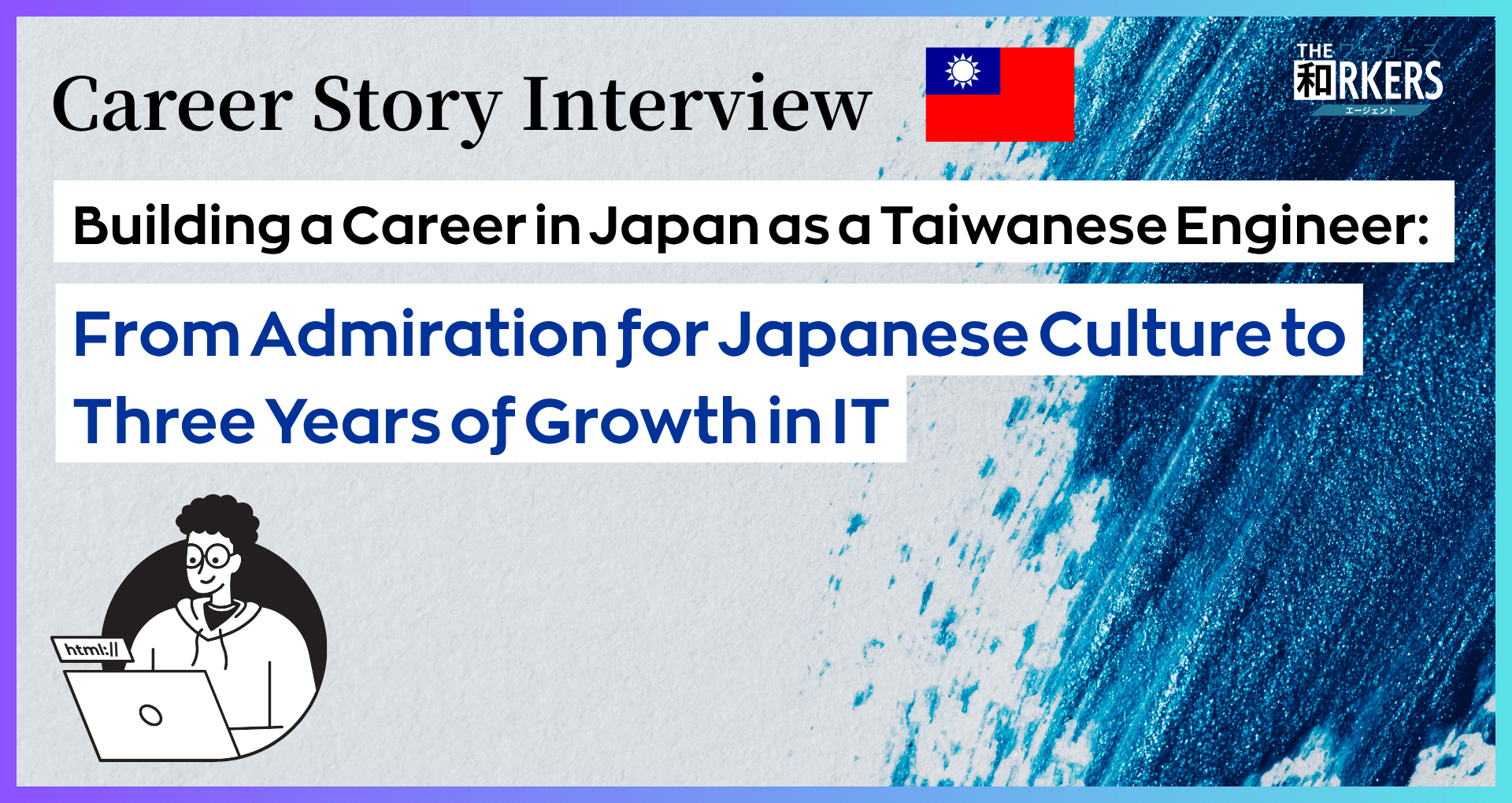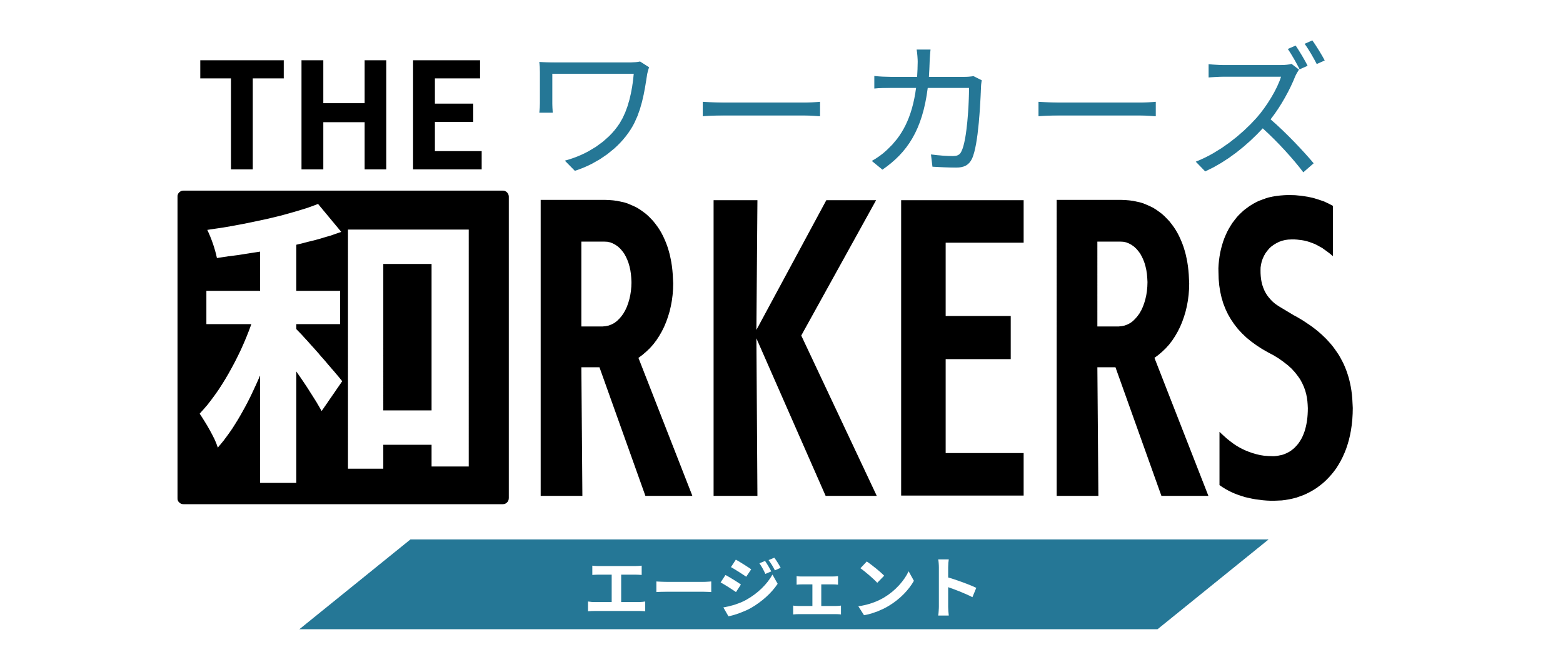Building a Career in Japan as a Taiwanese Engineer: From Admiration for Japanese Culture to Three Years of Growth in IT

From a childhood fascination with Japanese culture to a six-month university exchange in Japan, this Taiwanese engineer never let go of the dream of working in Japan. After starting a career in Taiwan, he successfully transitioned to a major Japanese IT company, overcoming cultural and language barriers to build a thriving career. Here, he shares his real-life experiences and advice for foreigners aspiring to work in Japan.
Fascination with Japan and Study Abroad Experience
— Could you briefly tell us about your background?
I’m currently working as an engineer, and it’s been almost three years since I started my professional career in Japan.
— What first sparked your interest in Japan?
Since I was a child, I’ve loved Japanese culture, including anime like NARUTO and ONE PIECE as well as dramas such as Code Blue.
I also visited Japan with my family as a tourist, which deepened my interest even further.
During my university years, I studied at a national university in Japan for six months as an exchange student. Traveling across Japan during that time made the country feel much closer to me.
— How long was your study abroad experience in Japan?
It was for six months. After returning to Taiwan, I completed my undergraduate degree and then went on to graduate school.
I majored in computer science at both the undergraduate and graduate levels, learning programming languages such as C++ during my bachelor’s studies and Python during graduate school.
Learning Japanese and Achieving JLPT N1
— Did you start learning Japanese seriously during your time studying abroad?
No, I had already been studying Japanese for about two years while at my university in Taiwan.
Studying in Japan allowed me to improve my practical conversation skills, and after returning to Taiwan, I took the JLPT and eventually obtained the N1 certification.
From Working in Taiwan to Building a Career in Japan
— After graduate school, you initially worked in Taiwan. What kind of company was it?
I worked as an engineer at a mobile phone company.
— What made you decide to take the leap and work in Japan? And how did you find your current job?
I always had the desire to work in Japan.
During my job search, the support I received from a Japanese language school and a recruitment agency was a huge help. The language school offered career support, and being introduced to opportunities through them ultimately led me to my current role.
— So even after working in Taiwan, your desire to work in Japan never faded?
That’s right. My determination to work in Japan never changed.
I kept my goal in mind, actively participated in recruitment events, and ultimately joined my current company, where I continue to work today.
Life as an Engineer in Japan and Personal Growth
— What kind of company do you work for now?
I work as an application engineer at a major Japanese IT company.
— Could you tell us about your current role?
I’m mainly involved in web development.
Our team has about 10 members, including 3–4 senior engineers. As for me, I’m still in the stage of building experience as a junior engineer.
— What has been the most challenging aspect of working in Japan?
Definitely the language.
There are many foreigners in my department, so communication can also happen in English or Chinese. However, our project manager is Japanese, so most of my communication with them is in Japanese. I try to use Japanese as much as possible, which means I often prepare in advance—translating and thinking through what I want to say before meetings.
This was a difficulty I never experienced while working in Taiwan, and I feel it’s a unique challenge of working in Japan.
— Is there any particular experience that stands out to you?
The time I first arrived in Japan really stands out.
I initially stayed in a temporary place I found through Airbnb, then worked with a real estate agency to find an apartment that would accept a foreign tenant. On top of that, I had to complete all the moving arrangements and administrative procedures within a month.
It was an extremely hectic time, but when everything was finally in place, I felt a huge sense of relief—like I could finally settle down and live in Japan with peace of mind.
— Did your company provide any support for housing or starting your life in Japan?
Not really. They only recommended a real estate agency to me. From there, I contacted the agency myself, visited properties, and handled the contract on my own.
Since there are limited rental options for foreigners, that part was especially challenging.
— Looking back on nearly three years in Japan, in what ways do you feel you’ve grown?
Definitely in terms of development experience.
Especially with Java—I didn’t work much with it in Taiwan, but after coming to Japan, I became deeply involved in Java development and grew a lot technically.
I also developed my communication skills through teamwork. In particular, I’ve significantly improved at reporting, sharing updates, and consulting with others—skills that are crucial for working in a Japanese company.
Job Satisfaction and Challenges Ahead
— When do you feel the greatest sense of fulfillment in your work?
It’s when I can see that what I’ve developed is actually being used.
Feeling that my work is contributing to the company or benefiting users gives me the most sense of accomplishment.
— What challenges do you face in your current role?
I do feel that I’ve grown, but there are still challenges.
One of them is expressing my opinions confidently in a team with 3–4 senior engineers.
I often feel that their opinions are correct and that I shouldn’t make mistakes, which makes it difficult to assert my own ideas.
But as an engineer, I know it’s important to have my own perspective and communicate it proactively, so that’s an area I want to improve.
Future Vision and Career Goals
— Are you considering changing jobs as you continue building your career in Japan?
Not immediately, but I think there is a possibility in the future.
I don’t plan to change companies within the next 2–3 years, but in the long run, I’d like to challenge myself in a new environment as part of my career growth.
— What are your goals and vision for the future?
First, I want to obtain permanent residency in Japan.
Then, I’d like to broaden my career opportunities, possibly at other companies, and continue growing as an engineer.
— What kind of engineer do you aspire to become?
Right now, I can’t fully grasp the entire system on my own.
When incidents or problems occur, I still need to consult others to handle them.
In the future, I want to be the kind of engineer who fully understands the system and can say, “This is the cause, so here’s how we should handle it,” and take action independently.
Advice for Foreigners Who Want to Build a Career in Japan
— Lastly, what advice would you give to foreigners who want to build a career in Japan?
I think many Taiwanese people in particular love Japan, and if you have the desire to work here, I recommend experiencing it for yourself first.
There are many rumors and stereotypes—like Japanese culture being strict or stressful—but in reality, it varies greatly depending on the company and environment.
For example, at my current workplace, there’s very little overtime, and the team has a great atmosphere.
If things don’t go well, it’s often a company or workplace issue—not a problem with Japan as a whole.
That’s why it’s important to experience it yourself and find an environment that fits you.
\Software Engineers, IT Consultants, Data Scientists…/

Non-Japanese and aiming for a top-tier job in Japan?
Get in touch with THE 和RKERS Agent today.



Software Engineers,
IT Consultants,
Data Scientists…

Non-Japanese and aiming for a top-tier job in Japan?
Get in touch with THE 和RKERS Agent today.
